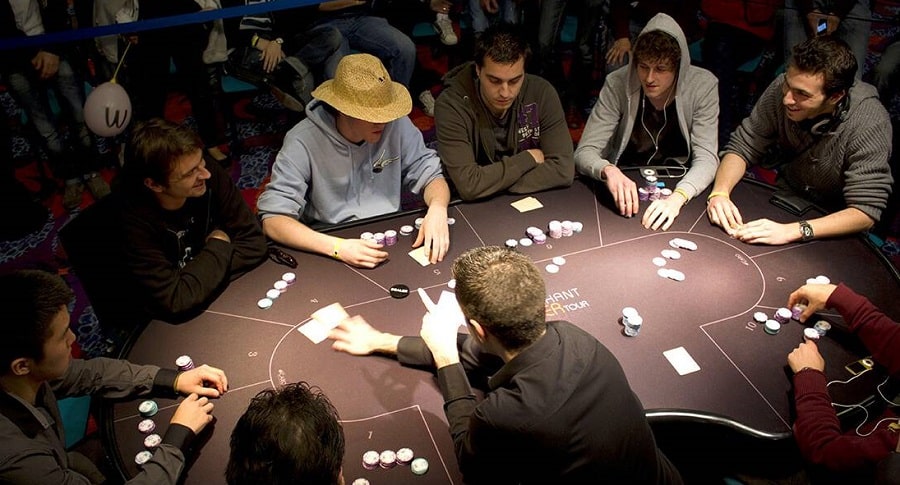
The game of Poker in Casino
Online poker is also an online poker game that is played via the internet. In the past this required the download and installation of software to your computer, today you can use flash or java versions that allow you to play through a browser on any operating system. Mobile and PDA versions have also appeared.
Differences between online poker and offline versions
- The online game does not allow you to see your opponent. The plus side is that you can express your emotions in various ways; the disadvantage is that you cannot follow the cues by analyzing your opponent’s gestures and behavior.
- The real game is time-consuming due to the need to manually shuffle and deal cards, and is limited to a single table.
- Online opens up a wide range of possibilities in terms of choosing opponents, limits, varieties and game times.
- The internet game does not prevent the use of special programs for mathematical calculations, gathering information on your opponent, performing analysis, finding weaknesses and choosing the right solution.
- Home poker creates the most comfortable conditions for the player, eliminating the need to listen to your opponent’s negative comments, inhale tobacco smoke, and stay at the table without any distractions.

Revenues and expenses
The dynamic development of online poker has contributed to a resurgence in the popularity of the game offline. However, the financial costs for the organisers are high, which have to be compensated by higher limits and interest charged by the bank.
The online version is limited to the costs of servers, software, and a small team that can service a huge number of gamers at the same time. Therefore, online casinos set low rake, offer bonuses, promotions, and raffles.
Security in online poker
The security of poker rooms is due to the fact that they do not directly participate in the game and do not risk anything unlike land-based casinos. Room profits do not depend on the performance of the individual player. The point of cheating is lost here.
The risk of unclean play on the Internet arises in the case of team play, where one group uses various tricks to pressure the other group for their own profit. However, this danger is also quite small, as poker rooms look out for the interests of each user and block teams with bad reputations. Also, every online gaming platform is equipped with a list of programs that cannot be used during the game and strictly monitors violators. For honest players who comply with the casino rules, visiting the big portals is virtually safe.
Poker software
Many interesting and varied programs are being created to increase interest in online poker. The former are able to replace humans in the game; the latter provide invaluable assistance in the gameplay process. There are two types of software: professional and amateur. In 2016, a team of researchers at the University of Alberta invented a two-person limit hold’em solution. The following year, the four strongest players lost to a computer in one-on-one Texas Hold’em. The prize money amounted to $2 million.
